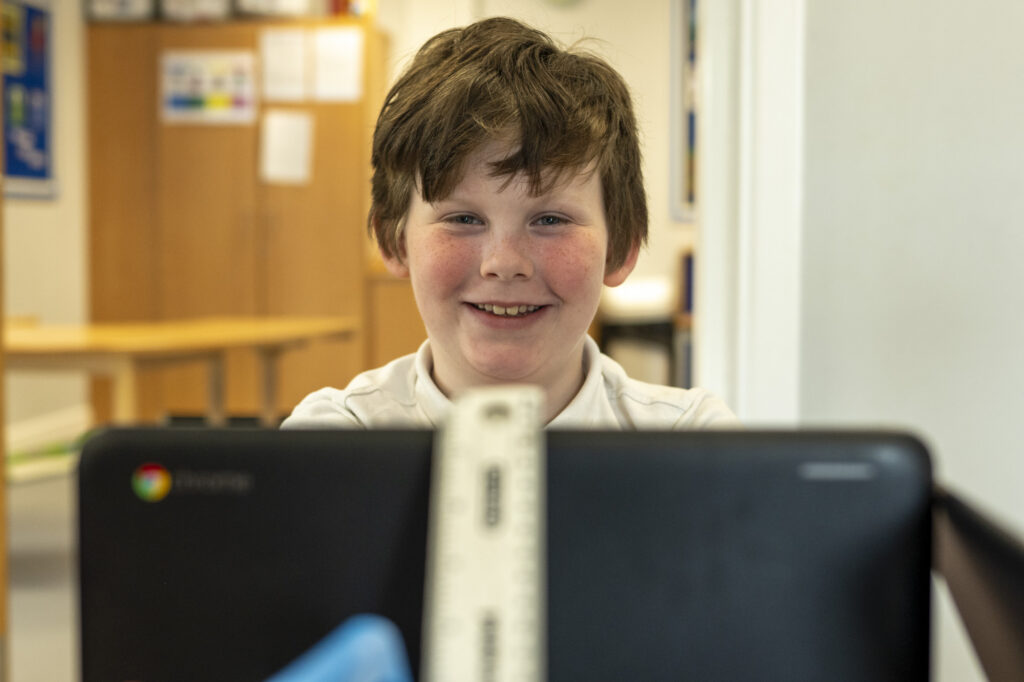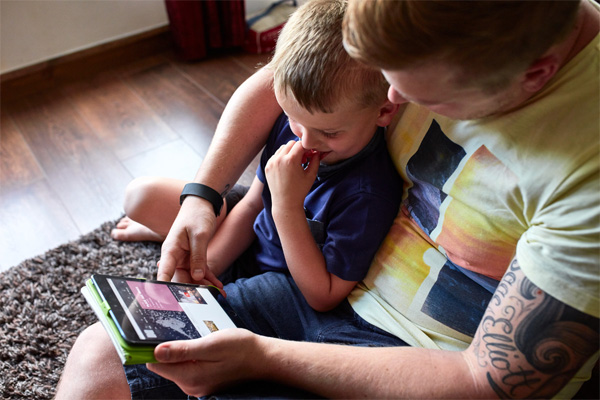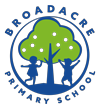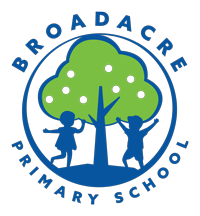Online Safety
Online safety is an important part of keeping children safe at Broadacre Primary School . We have extensive security measures in place in school, which are monitored both internally and externally, to help safeguard pupils from potential dangers or unsuitable material. All online safety incidents are recorded, investigated and managed. Online safety is taught to all pupils through computing and PSHE lessons, giving the pupils the tools to navigate the online world safely, responsibly and appropriately.
We can only be successful in keeping children safe online if we work with parents to ensure the Online Safety message is consistent. It is important that parents speak to their children about how they can keep safe and behave appropriately online.


Resources for parents:
Advice on remote learning
Advice on social media & staying safe
Parental Controls
Smartphones and other devices
Children are using devices at a younger age so it’s important to consider setting controls on their tech, or on any devices that you are letting them borrow from you. We’ve pulled together a number of guides to give you simple steps to set controls on a range of devices.
E-Safety Tips for Parents
InternetMatters.org is a not-for-profit organisation that has a simple purpose – to help keep children safe in the digital world.
KC Parental Internet Settings
KCOM Parental controls lets you choose how much of the internet you would like you and your family to see. It’s easy to set up and will help you make sure that your family is safe using the internet in your home.
Choose an age profile between 1 – 6, 7 – 11, 12 – 15, 16 – 18 to control the amount of the internet you see. You can even personalise your profile to suit your family.
Switch them on now by clicking here. It’s simple, safe and free for all KCOM broadband customers.

Organisations and websites offering further information and support for online safety:
Play Like Share –
Play Like Share follows the adventures of Sam, Ellie and Alfie as they form a band and enter their school’s Battle of the Bands contest, taking on the mean but ‘cool’ Popcorn Wizards as they go. The three friends learn that while the internet can help, they need to use it wisely and safely.
The aim of the films is to help 8-10 year olds learn how to stay safe online. In particular, the films teach them to spot the early signs of manipulative, pressurising and threatening behaviour by people they might meet online, and develops their confidence to respond safely and get help.
Be Share Aware –
Keep your child safe online
We tell our children it’s good to share – but online it’s different. In fact sometimes sharing online can be dangerous. Being Share Aware will help keep your child safe online.
Watch and share a short film and take a look at some straightforward advice that will untangle the web, and give parents confidence in talking to their children about how to stay safe online.
‘The school provides a happy and welcoming environment with a ‘family feeling’ in the new, large school building.’
‘The early years learning area is bright and inviting, with a focus on vocabulary development through song and rhyme.’
‘A new phonics scheme has been introduced, improving the teaching of reading.’
‘Pupils with SEND receive high-quality and effective support, allowing them to access the full curriculum.’
‘Pupils’ behavior is extremely good, with a calm and purposeful atmosphere.’
‘The mathematics curriculum has improved significantly, leading to confident problem-solving abilities in pupils.’
‘High expectations for all pupils are maintained by all adults at the school.’
‘The curriculum includes personal, social, and emotional development, with a focus on values such as democracy and respect.’
‘Pupils regularly revisit past learning, and assessments are used effectively to plan next steps.’
‘Staff and pupils show great respect for each other.’
‘Adult interactions in early years are well planned to support resilient and purposeful learning.’
‘Teachers are supported to plan stimulating and interesting lessons.’
‘The school has specially resourced provisions for pupils with SEND, particularly those with autism spectrum disorder.’



